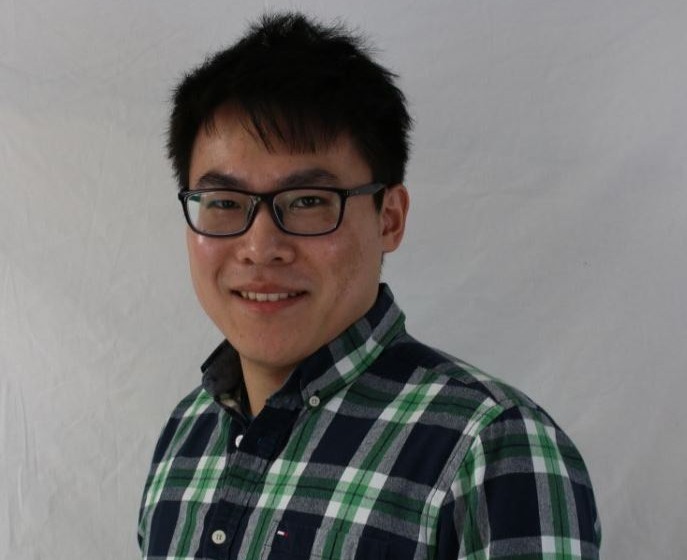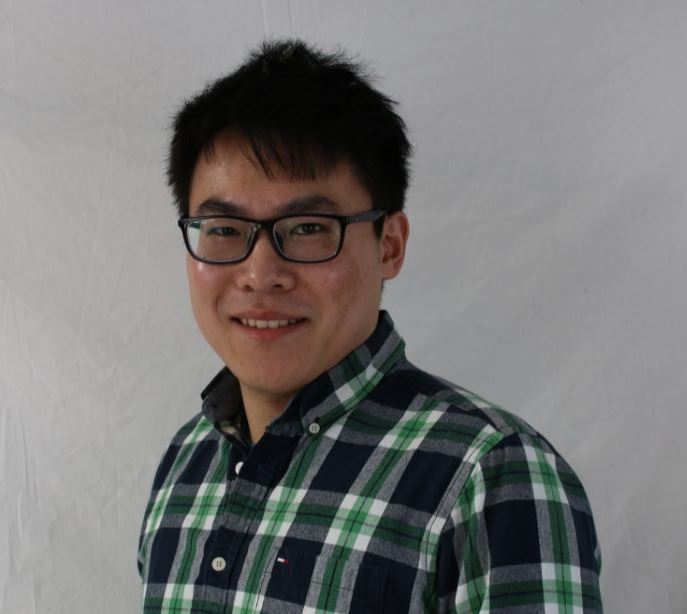
Undergraduate Institution: University of Minnesota – Twin Cities (Minneapolis, MN)
B.Ch.E. – Chemical Engineering
B.S. – Chemistry
Graduate Institution: University of Connecticut (Storrs, CT)
Ph.D. Candidate – Chemical Engineering
Describe your research interests:
My research project topic at UConn is pattern recognition of complex odors with chemiresistive sensor array using nanomaterial-based sensing elements. I design and fabricate sensor devices using cleanroom facilities and evaluate sensor performance using statistical analysis. The focus of my research is to achieve robust detection and reliable classification of chemical analytes in complex environment.
What is the biggest reason why you chose your field of study?
After finishing my undergraduate degree, I chose to pursue a PhD in chemical engineering because I would like to perform interdisciplinary research that involves chemistry, physics, and materials science. My research project fits in the area of nanotechnology, which offers a vast range of applications in many industries.
How did you choose your particular internship?
I was thinking of gaining some relevant industry experience during my PhD so that I can better understand the difference between academia and industry. One of the most important experiments in my research project is cleanroom fabrication. During my internship search, I targeted positions that involved materials fabrication and characterization. I found an intern position in the Wafer Metrology Department at Seagate, that fit my current research at UConn, and decided to apply.
What new skills or knowledge have you gained from participating in your internship?
During my internship, I gained experience in writing programming recipes for microscopic image analysis applications and used the recipes for production. I also familiarized myself with many different fabrication tools.
Describe your role in your internship. What did your daily tasks consist of?
During my internship, I worked with scientists and engineers in the Wafer Metrology group. My tasks focused on microscopic image quality analysis and defect examination. This was one of the hundreds of steps to manufacture a commercial hard-disk drive product for data storage. For my first project, I designed a text-based programming recipe that differentiated sharp images from blurry ones, using discriminative parameters such as contrast, median pixel intensity, and transition gradient. The recipe was utilized to grade and bin batch images into classes. In my second project, I was responsible for drafting a standard operating procedure (SOP) for a defect inspection tool and assisting in training sessions for technicians.
What advice would you give to current UConn graduate students who are looking to go on the same path?
I encourage all graduate students to participate in an internship that fits their career plan during their time of study. There are many internship opportunities for graduate students, from industry, national labs, or another institution. It is a great opportunity to explore some state-of-the-art applications in your field of research outside your study. Also, you can make professional connections with your supervisors, mentors, and colleagues for future networking. It is also a good idea to talk to your advisor so that they know your career goal and you can choose the opportunities that best fit you.
What do you know now about graduate school that you wished you knew before entering?
I was amazed by the types of resources, both academic and non-academic related, that UConn offers. There are workshops and student organizations that help you develop not only as a graduate student, but also as a person. As a graduate student, we should prioritize our research, but it is also important to have a balanced schedule. Getting involved in social events (such as attending a UConn Huskies game, watching a play at Jorgensen, or leading a position in a student organization) will make your graduate career more versatile.
What are your future plans with respect to your career?
After my PhD program I plan to stay in nanotechnology industry as a scientist/engineer that utilizes my research skills. It will be exciting to see what nanotechnology can bring to society in the next decades.

